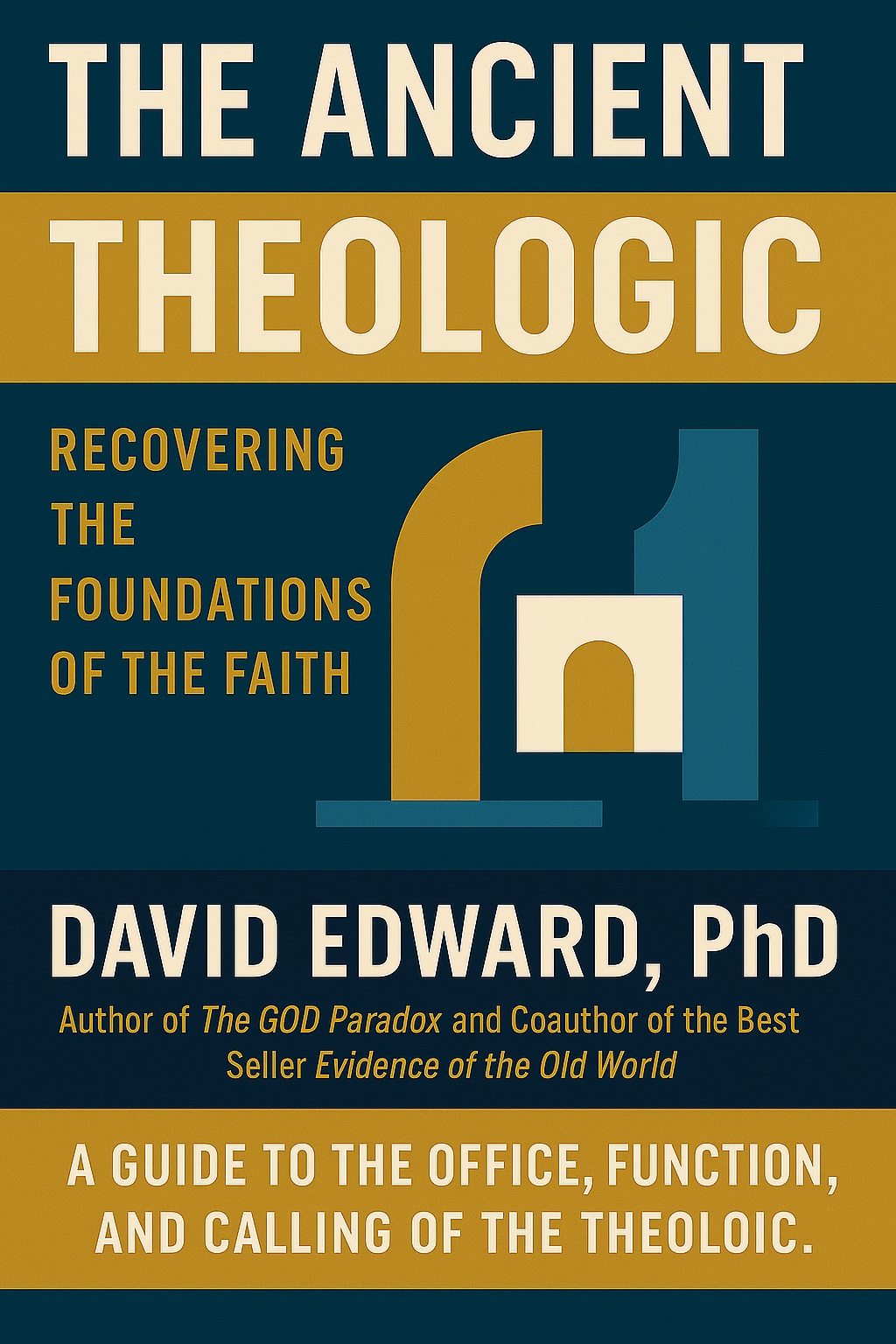The Ancient Theologic: Recovering the Foundations of Faith
By David Edward, Ph.D.
A groundbreaking exploration of Christianity's lost office of structural guardianship. This comprehensive work reveals how the early church maintained theological integrity through specialized formation and why recovering these ancient practices is essential for modern faith.
Get Book

|
OverviewIn an age when theological systems buckle under unprecedented pressures, when sincere believers reach contradictory conclusions from identical texts, and when institutional failures have shattered trust in traditional authorities, this book uncovers a forgotten office that once preserved Christianity's essential architecture. The Theologic served as structural analyst of divine truth, ensuring that doctrinal frameworks could bear the weight claimed of them. Through meticulous historical investigation and contemporary application, readers discover how this ancient calling differs from pastor, theologian, or apologist, serving instead as guardian of the load-bearing relationships that make coherent faith possible. The text reveals three critical discoveries: first, that humanity inherits a corrupted vantage point that systematically distorts theological perception; second, that Christ's incarnation addressed this positional crisis by restoring the external observation post necessary for accurate sight; and third, that specialized formation can develop individuals capable of perceiving and preserving Christianity's divine architecture. Drawing from patristic sources, engineering principles, and contemporary structural analysis, the book demonstrates how theological problems that seem intractable from one position dissolve when viewed from another, offering hope for unity without compromise. This work particularly resonates with engineers, architects, programmers, and others trained in structural thinking who sense disconnect between Christianity's claims and contemporary manifestations. Through ten progressively building chapters, readers journey from historical investigation through systematic formation processes to practical application. The book includes the complete text of the Didache with structural commentary, demonstrating how the earliest Christians understood faith as architecture requiring careful construction. For those exhausted by surface-level theology and hungry for coherence in an age of fragmentation, this book provides both vindication and direction toward Christianity's intact divine structure. |
Questions this book answers
- Why do equally sincere believers reach opposite conclusions from the same biblical texts?
- What was the office of the Theologic and why did the church forget this essential role?
- How does positional corruption create systematic distortion in theological perception?
- Why do theological systems inevitably develop internal contradictions despite careful scholarship?
- What is structural theology and how does it differ from systematic theology?
- How can Christianity's apparent contradictions resolve when viewed from the proper vantage point?
- What formation process transforms observers into architects of theological integrity?
Selected quotes
"Scripture is not merely a collection of inspired texts; it is an architectural masterpiece. Every element supports and reinforces the whole, creating stability across the entire system."
"The corrupted vantage reads Scripture as external observer rather than intended participant. We analyze the text rather than inhabit it. We debate meanings rather than undergo transformation."
"The Theologic does not seek recognition; they seek alignment. They do not pursue innovation; they pursue restoration. They do not desire platforms; they desire to preserve the platforms where truth can be proclaimed."
Why it matters
As theological education abandons structural responsibility and denominations fracture over surface disputes, Christianity faces a crisis of coherence that threatens its credibility with analytical minds. The cost of ignoring theological architecture is continued fragmentation, where sincere believers exhaust themselves defending systems they sense are failing. This book offers the diagnostic tools and formation processes necessary to identify structural problems and restore theological integrity. For pastors, theologians, and thoughtful believers, understanding Christianity's divine architecture transforms exhausting defense into confident proclamation, revealing that beneath surface struggles lies an intact structure waiting to be perceived and preserved.